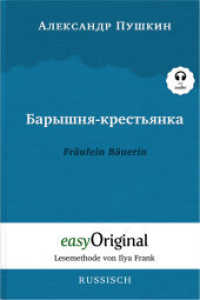Full Description
Being Ethical among Vezo People analyzes environmental change in reef ecosystems of southwest Madagascar and the impacts of global fishery markets on Vezo people's well-being. The ethnography describes fishers' changing perceptions of the physical environment in the context of livelihood and ritual practices and discusses their shared understandings of how Vezo persons should live.
Under new marine protected area regulations, each village is responsible for managing its octopus fishery with a temporal closure. Frank Muttenzer argues that locals' willingness to improve well-being does not commit them to a conservationist ethos. To cope with resource depletion Vezo people migrate to distant resource-rich marine frontiers, target fast growing species, and perform rituals that purport to affect their luck in fishing and marine foraging. But they doubt conservationists' opinion that coral reef ecosystems can be managed for sustainable yield.
The richly documented, elegantly theorized, and fresh ethnographic outlook on the Vezo addresses current issues in marine ecology and conservation, small-scale fisheries, and the semiotics of rural livelihoods and human well-being, particularly its expression in ritual. It will be of strong interest to environmental scientists, Madagascar specialists, and anthropology generalists alike; particularly those who are interested in what the modes of engagement with the environment of foraging peoples can teach us about the human condition at large, and the nature-culture debates in particular.
Contents
Illustrations
Preface
Introduction: Ecological Psychology and the Anthropology of Well-Being
Part I - Fishing Livelihoods
Chapter 1 - Luck with Marriage: Being Ethical among Ritually Constituted Persons
Chapter 2 - The Group Ethos: Human Affordances of the Sea Cucumber Fishery
Chapter 3 - Knowing How to Fish: Scarcity, Markets and Wishful Thinking
Chapter 4 - The Unenclosed Commons: What Goes Without Saying among Octopus Gleaners
Part II- Moral Luck
Chapter 5 - The Blue Growth Narrative: Assigning Blame for Resource Depletion
Chapter 6 - Geopolitics of the Marine Frontier: Taboo and Sacrifice in the Barren Isles
Chapter 7 - Fishing Magic and Shared Doubt: Seasonal Migrants' Ritual Cycle
Chapter 8 - The Reliability of Oracles: A Pledge to Confirm What the Spirits Say
Conclusion: Well-Being, Ecology, and Moral Disagreement
Bibliography
Index
About the Author







